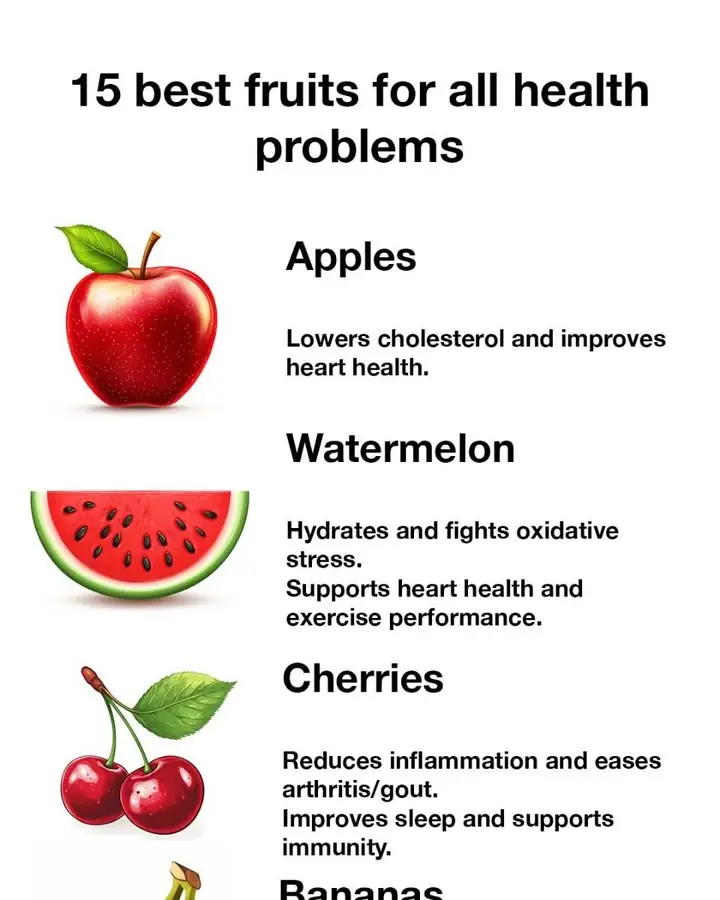In today’s fast-paced world, where synthetic solutions often dominate the shelves, some of the most powerful remedies are quietly growing under our feet. One such natural wonder is Lactuca serriola, commonly known as prickly lettuce — a wild green often mistaken for a mere weed.
Far from being just another roadside plant, this resilient herb has a rich history of use for wellness, relaxation, and gentle nourishment. Rooted in tradition, prickly lettuce reminds us that nature’s gifts are often simple, accessible, and powerful.
1. A Superfood Disguised as a Weed
Despite its rugged look, Lactuca serriola is packed with essential nutrients:
-
Vitamin A: Supports vision, skin health, and immune defense
-
Vitamin C: A powerful antioxidant that boosts immunity and protects cells
-
Vitamin K: Important for bone strength and blood clotting
-
Potassium, Calcium, Magnesium: Crucial for heart health, muscle function, and electrolyte balance
Adding wild greens like prickly lettuce to your meals is a simple way to nourish your body straight from the earth — just as nature intended.
2. The Soothing Power of Its Milky Sap
One of prickly lettuce’s most fascinating features is the white latex it releases when cut — once nicknamed “wild opium” (though it contains no opiates). Traditionally, this milky sap has been used to:
-
Ease minor headaches
-
Relieve muscle soreness
-
Promote relaxation and restful sleep
Though not a replacement for medical treatment, it offers a gentle, natural way to support daily comfort.
3. Helping the Body Manage Inflammation
Lactuca serriola contains natural compounds like lactucopicrin, which may help balance the body’s inflammatory response:
-
Soothes minor joint swelling
-
Aids recovery after physical activity
-
Helps the body handle everyday stress more effectively
Incorporating herbs that support inflammation balance can be a small yet meaningful step toward long-term wellness.
4. A Friend to Your Digestion
Like many bitter greens, prickly lettuce gently supports the digestive system by:
-
-
Stimulating enzyme and bile production
-
-
Reducing bloating and heaviness after meals
-
Supporting mild cleansing of the liver and kidneys
A few tender leaves before meals may help prime your digestive system for smoother digestion.
5. Defending Against Oxidative Stress
Thanks to its rich antioxidant content, prickly lettuce helps the body combat oxidative stress — the damage caused by free radicals that can accelerate aging:
-
Protects cells from daily wear and tear
-
Promotes healthy, youthful skin
-
Supports long-term heart and brain health
Adding antioxidant-rich plants like this to your diet can help you build natural resilience over time.
6. A Wild Edible with Culinary Potential
Young prickly lettuce leaves are completely edible and surprisingly versatile:
-
Toss into salads for a bold, earthy flavor
-
Sauté with olive oil and garlic for a savory side dish
-
Add to soups or stews for a nutrient boost
Cooking older leaves softens their bitterness, making them easier to enjoy without losing their value.
7. A Quiet Ally for the Environment
Beyond its health benefits, prickly lettuce supports the local ecosystem:
-
Stabilizes soil and prevents erosion
-
Provides nectar for bees, butterflies, and pollinators
-
Encourages biodiversity in gardens and natural spaces
Leaving a few wild lettuce plants in your garden can promote a healthier, more resilient environment.
8. A History Rooted in Ancient Traditions
Lactuca serriola isn’t a modern discovery — it has been revered across many cultures for centuries:
-
Ancient Egyptians valued it for calming effects and fertility
-
Medieval herbalists used it to ease pain and promote rest
-
European folk medicine regarded it as a gentle aid for sleeplessness and discomfort
This long-standing history reminds us that some of the most effective wellness tools are timeless.
9. How to Safely Enjoy Prickly Lettuce
If you’re curious to try this wild herb, here are some beginner-friendly ideas:
-
Wild salads: Add young leaves to mixed greens
-
Sautéed greens: Cook mature leaves with olive oil
-
Herbal infusions: Make a calming tea from dried leaves
-
Garden for wildlife: Let a few plants grow to support pollinators
Safety tips:
-
Correctly identify true Lactuca serriola
-
Start small and enjoy in moderation
-
Consult a healthcare provider if pregnant, breastfeeding, or taking medications
Mindful use ensures a safe and rewarding experience.
Final Thoughts: A Rediscovered Natural Ally
In the rush of daily life, it’s easy to overlook the quiet strength of wild plants. Yet prickly lettuce offers a gentle reminder: sometimes, the most powerful remedies are growing right in front of us.
Whether you’re looking to support digestion, reduce minor discomfort, or reconnect with the rhythms of nature, Lactuca serriola is a wild gift worth rediscovering.
So the next time you pass by a thorny plant on a roadside path, take a moment to look closer — you might just be walking past one of nature’s most ancient and underestimated allies.
Watermelon Lemonade
A sweet and tangy thirst-quencher perfect for summer parties, BBQs, or poolside lounging.
📋 Course: Beverage | Cuisine: American
Prep Time: 10 mins | Cook Time: 0 mins | Servings: 6 | Calories: 108 kcal
Author: Trish – Mom On Timeout
✨ Why You’ll Love It
This Watermelon Lemonade is summer in a glass — naturally sweet, citrusy, and ultra-refreshing. It’s the perfect drink to cool off during hot days and comes together in minutes using fresh ingredients and a blender.
🛒 Ingredients
-
5–6 cups seedless watermelon, cut into 1–2 inch cubes
-
2 cups ice-cold water
-
⅓ cup granulated sugar (adjust to taste)
-
½ cup freshly squeezed lemon juice (about 4 large lemons)
-
2 tbsp fresh lime juice (about 1 large lime)
-
2 tbsp agave nectar (optional – honey or maple syrup can be used instead)
-
Optional Garnishes:
-
Fresh mint leaves
-
Watermelon wedges
-
Lemon or lime slices
-
🍉 Instructions
-
Blend the Base
In a high-powered blender, combine watermelon cubes, ice-cold water, and granulated sugar. Blend until smooth and fully liquified. (Tip: Use the smoothie or high-speed setting twice for extra smoothness.) -
Strain for Smoothness
Pour the watermelon juice through a fine-mesh strainer into a large pitcher. Use a spoon to press the juice through the strainer, removing the pulp. -
Add Citrus & Sweetener
Stir in lemon juice, lime juice, and agave nectar (if using). Mix well until sweeteners are fully dissolved. Taste and adjust sweetness with additional sugar, agave, or honey if desired. -
Serve and Enjoy
Pour over ice and garnish with a slice of watermelon, a twist of citrus, or a few sprigs of fresh mint for that extra-refreshing touch.
📝 Notes
-
Serving Tip: For parties, double or triple the batch and serve in a clear beverage dispenser with floating fruit slices and mint.
-
Make It Sparkling: Replace 1 cup of water with club soda for a fizzy twist.
-
Storage: Best served fresh, but can be stored in the refrigerator for up to 2 days.
📊 Nutrition (Per Serving)
Calories: 108 | Carbs: 28g | Sugar: 24g | Fat: 1g
Protein: 1g | Vitamin C: 20mg | Potassium: 169mg | Fiber: 1g
Natural Face Lift: Banish Wrinkles with Baking Soda and Water

Are you tired of wrinkles and sagging skin but hesitant about expensive treatments? Say hello to a simple and effective solution – baking soda and water! This powerful duo tightens the skin, boosts collagen production, and diminishes wrinkles in minutes. No need for pricey creams when you have this natural remedy at your disposal!
The Magic of Baking Soda for Your Skin
Baking soda isn’t just for baking or cleaning – it’s a skincare superhero too! With exfoliating and tightening properties, it eliminates dead skin cells, unclogs pores, and enhances circulation. The result? Smoother, radiant skin. Teamed with water, baking soda becomes a gentle cleanser stimulating collagen production for a natural face lift.
Achieve Instant Results with Baking Soda and Water
Ingredients:
- 1 tablespoon of baking soda
- 1 tablespoon of water (adjust for desired consistency)
Instructions:
- Mix the Paste: Combine baking soda and water in a bowl to create a smooth, spreadable paste.
- Apply to Your Face: Gently massage the paste onto areas with prominent wrinkles, avoiding the eyes.
- Massage Gently: Massage the mixture in circular motions to stimulate blood flow and exfoliate the skin.
- Let It Work: Leave the paste on for 3 minutes, feeling the magic tighten and lift your skin.
- Rinse Off: Wash your face with warm water, then cold water to close pores, and pat dry.
- Moisturize: Hydrate your skin with coconut oil or aloe vera gel to lock in moisture and enhance firmness.
The Science Behind It
This natural face lift technique offers multiple benefits:
- Exfoliation: Say goodbye to dead skin cells, revealing youthful skin.
- Collagen Boost: Stimulates collagen production for improved elasticity and fewer fine lines.
- Instant Tightening: Enjoy a quick face lift, looking smoother and more youthful in minutes.
Use Regularly for Lasting Effects
For enduring results, apply this treatment 1-2 times weekly. Over time, witness firmer skin, fading wrinkles, and a radiant glow with consistent use.
In Conclusion
Ditch expensive creams and opt for this budget-friendly natural face lift. Baking soda and water are a gentle yet potent combo for smoothing wrinkles and enhancing skin texture. Embrace this method today for a youthful, radiant complexion in just 3 minutes!
15 best fruits for all health problems





